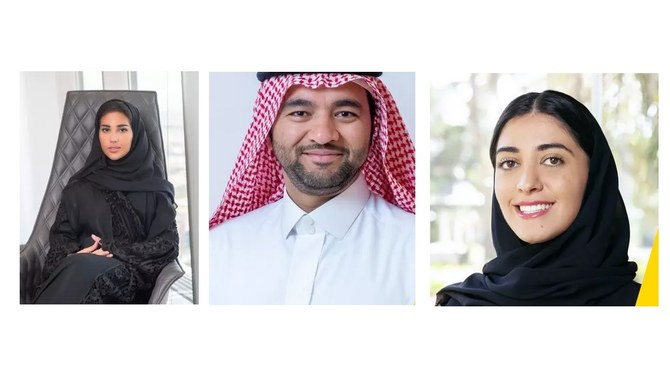DUBAI: Three Saudi nationals have been selected to join the World Economic Forum’s Young Global Leaders (YGL) class of 2021.
Founder and Executive Chairman of the WEF, Klaus Schwab, created the YGL in 2004 to “help the world meet increasingly complex and interdependent problems.”
Every year, the Forum honors outstanding and uniquely accomplished individuals who are committed to building a peaceful and prosperous shared global future.
Ten other nationals from the Middle East and North Africa (MENA) region have also been selected among the 112 YGL class of 2021.
The class includes justice and human rights activist, multi-award winning artist, as well as advocate for indigenous literacy, and leaders from business, civil society, healthcare and government.
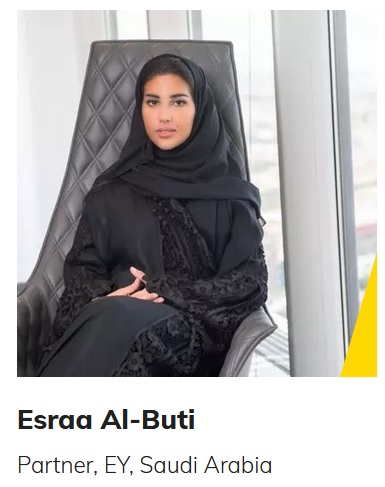
Esra joined EY Kingdom of Saudi Arabia eight years ago and in 2019 became the first-ever woman partner in our Saudi member firm, as well as the youngest ever. Today she leads EY’s Tax Controversy practice in Saudi Arabia. Her work at EY includes advising KSA-based large local/multinational groups and family businesses on tax advisory assignments and tax- and zakat-compliance matters.

Fawaz Farooqui is a public sector entrepreneur and innovator who led multiple transformations and established several entities and companies. He currently serves as the Chief Advisor to the Saudi Minister of Culture and sits on the board of several organizations such as Saudia Airlines, Cruise Saudi Corporation, AlUla Development Company and the Saudi Sports for All Federation.

Dana Juffali is currently a Board Member at E.A. Juffali & Brothers, and Director of Business Development at Khaled Juffali Company. In addition, Dana is a Board Member of a number of philanthropic institutions, including the The Shefa Fund, and The Help Center. She previously held managerial positions at Siemens AG in Germany and Saudi Arabia in Human Resources and Supply Chain Management.

Mohamed Al Hashemi is the Country Head of Majid Al Futtaim in the Kingdom of Saudi Arabia. In his role, he leads a team of over 1,300 employees and is responsible for Majid Al Futtaim Leisure, Entertainment and Cinemas as well as Majid Al Futtaim Lifestyle. During his tenure in this role, Mohamed introduced Cinemas to Saudi and helped create and shape the industry.
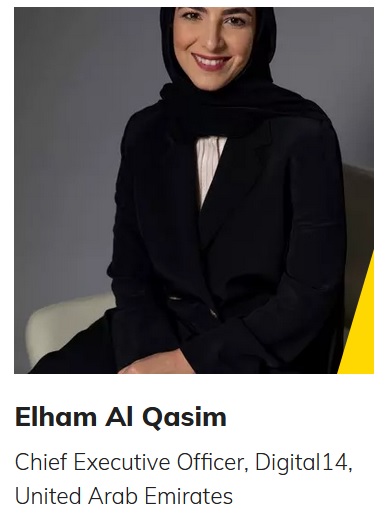
Elham Al Qasim serves as Digital14’s Chief Executive Officer, steering the organisation’s strategic direction, and leading over 1,000 staff in their purpose-driven work to deliver trust in digital so that clients can innovate and fulfil their potential. Prior to joining Digital14, Elham enjoyed a global career with executive roles in investment and asset management.
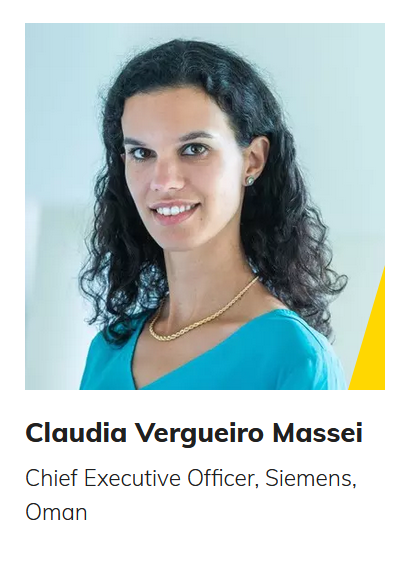
As Siemens Oman CEO, Claudia is committed to enabling the digital transformation in the sultanate and to contributing to its economic development. She drives business in power distribution, smart grid, smart buildings, control and automation, and digital solutions for industrial applications.
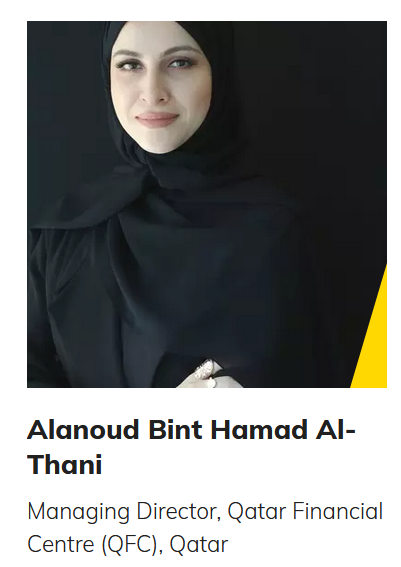
Alanoud is the first woman and youngest member appointed to Qatar Financial Centre's (QFC) Executive Committee as Managing Director. Prior to joining the QFC, she led and contributed to the creation of thousands of jobs for Arab youth and provided economic assistance to marginalized communities (including refugees) in the Middle East and North Africa through her role as Qatar Country Representative and Director of its operations at Silatech.
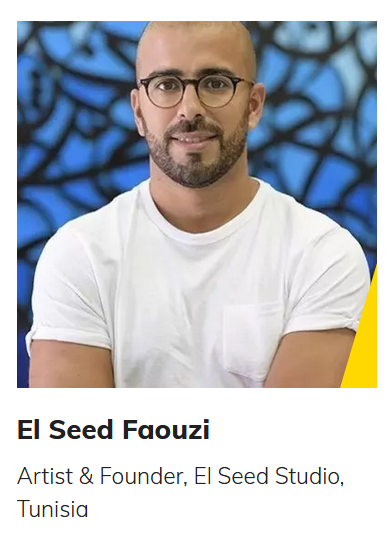
El Seed uses Arabic calligraphy and a distinctive style to spread messages of peace, unity and to underline the commonalities of human existence. His artwork can be found all over the world and consistently aim at unifying communities and redressing stereotypes. Born in 1981 in Paris to Tunisian parents, he was disconnected from his Arabic roots, speaking only the Tunisian dialect of the language at home.

Iriqat, Dalal, Dr., is assistant professor and VP of Int. Relations at the Arab American University Palestine. Dalal is a weekly columnist at AlQuds Newspaper since 2016. Dalal’s research focus on Diplomacy, Nation Branding, Palestinian State Building, Coercive Diplomacy, Public Diplomacy, Soft Power, Mediation and Conflict Resolution.

As an impact driven young African leader, Sanae is currently director of Mazars Morocco’s Africa Business Unit. She led number of strategic projects along her dynamic and diversified career in both public and corporate sectors, building shared and sustainable values for African communities.

Gadeer Kamal-Mreeh is a member of the Yesh Atid Party and the first Druze woman to serve in the Knesset. Before entering politics, Kamal-Mreeh was a journalist, hosting the daily newscast in Arabic for the Israeli Broadcasting Corporation. In 2017, Kamal-Mreeh made history as the first non-Jewish woman to anchor a primetime Hebrew newscast in Israel.

Dr. Kira Radinsky is the chairperson and CTO of Diagnostic Robotics, where the most advanced technologies in the field of artificial intelligence are harnessed to make healthcare better, cheaper, and more widely available.In the past, she co-founded SalesPredict, acquired by eBay in 2016, and served as eBay director of data science and IL chief scientist.
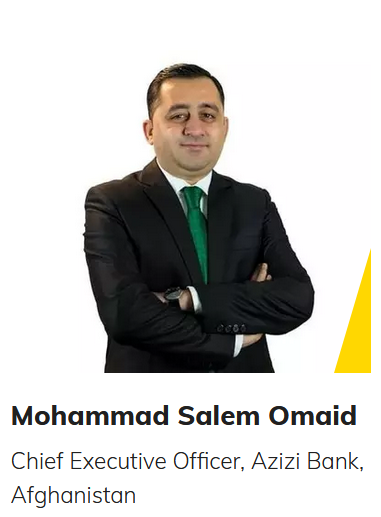
Dr. Mohammad Salem Omaid, the Chief Executive Officer of Azizi Bank, Afghanistan has a storied career as a banker. Joining the bank as a cashier in the year 2006, he grew to become the CEO proving his impeccable caliber and commitment for creating a “World Class Bank”. Over this period, he has built from scratch a bank that is now the one of the biggest in the country.


